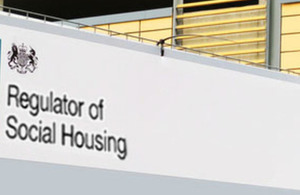- Chancellor unveils bold new growth plan, backing business and improving living standards for everyone in the UK.
- Corporation tax rise cancelled, keeping it at 19% as government sets sights on 2.5% trend rate of growth.
- Basic rate of income tax cut to 19% in April 2023 – one year earlier than planned – with 31 million people getting on average £170 more per year and 1.2 million people in Wales to get National Insurance cut worth £235.
- Welsh Government receives around £70 million as a result of tax cuts elsewhere in the UK.
On Friday 23rd September the Chancellor unveiled his Growth Plan to release the huge potential in the UK economy, tackling inflation and delivering higher productivity and wages.
Kwasi Kwarteng set out a bold plan backing business and putting them on a path of economic growth. The basic rate of income tax in Wales will be cut to 19% from April 2023, worth an average of £170 and 1.2 million workers in Wales will see a cut in their National Insurance worth an average of £235 a year.
Cuts to Stamp Duty in England and Northern Ireland will also see the Welsh Government receive around £70 million over the three-year 2021 Spending Review period.
Boosting economic growth will enable stable funding for public services, higher wages and greater opportunities for the whole UK.
Chancellor of the Exchequer, Kwasi Kwarteng, said:
Economic growth isn’t some academic term with no connection to the real world. It means more jobs, higher pay and more money to fund public services. This will not happen overnight but the tax cuts and reforms I’ve announced today – the biggest package in generations – send a clear signal that growth is our priority.
We want businesses across Wales to keep more of their own money to invest, innovate, and grow. Our income tax and national insurance cuts will mean hundreds of pounds a year more in the pockets of over a million workers in Wales.
And our Energy Bill Relief Scheme is protecting thousands of businesses across Wales from rising energy costs with discounts of wholesale gas and electricity prices.
Our Growth Plan sets the whole United Kingdom on the path for growth, building on the fiscal strength of our Union and releasing the enormous potential of this country.
Secretary of State for Wales, Robert Buckland said:
Today’s bold measures put economic growth at the heart of our plans for Wales and the UK.
The UK Government has already committed to protect Welsh households and businesses from rising prices through the Energy Bill Relief Scheme. But a healthy, growing economy is the best long-term solution to the enormous financial pressures facing the entire country.
By driving investment, cutting taxes, and backing business, the UK Government will get more people into well-paid jobs, allow workers to keep more of their hard earned money and get the Welsh economy growing again.
Setting out the first steps towards growth today, Kwasi Kwarteng revealed major tax reforms to allow businesses to keep more of their own money, encouraging investment, boosting productivity and creating jobs. New measures include cancelling the planned rise in corporation tax, keeping it the lowest in the G20 at 19%, and reversing the 1.25% rise in National Insurance contributions, a change which will save 920,000 UK businesses almost £10,000 on average next year and 1.2 million people in Wales an average of £235 a year.
The Chancellor also set out plans to tackle to the biggest drag on growth – the high cost of energy driven by Vladimir Putin’s invasion of Ukraine which has driven up inflation. To tackle this the government’s Energy Price Guarantee will save the typical household £1,000 a year on their energy bill and halve the cost of business energy bills, reducing peak inflation by about 5 percentage points.
It was also confirmed that the UK Government will look to work with the Welsh Government and local authorities to set up Investment Zones in specific sites across the UK. Each Investment Zone will offer generous, targeted and time limited tax cuts for businesses and liberalised planning rules to release more land for housing and commercial development. These will be hubs for growth, encouraging investment in new shopping centres, restaurants, apartments and offices, and creating thriving new communities.
Revealing further tax reforms, Kwasi Kwarteng outlined sector specific support for pubs and hospitality, freezing alcohol duty for another year. Reforms to modernise alcohol duties will also be taken forward. The new measures backing business come on top of the government’s Energy Bill Relief Scheme for businesses to cap costs per unit, which will protect them from soaring energy costs this winter by providing a discount on wholesale gas and electricity prices.
The Chancellor also reiterated the important principle of people keeping more of what they earn, incentivising work and enterprise. He announced a 1p cut to the basic rate of income tax one year earlier than planned. From April 2023, the basic rate of income tax will be cut to 19% and will mean over 31 million people will be better off by an average of £170 per year. Alongside cutting the basic rate of income tax, the Chancellor also abolished the additional rate of tax, taking effect from April 2023. In its place will be a single higher rate of income tax of 40%. The move is designed to attract the best and the brightest to the UK workforce, helping businesses innovate and grow.
The Chancellor also announced more relief for businesses by making the Annual Investment Allowance £1 million permanent, rather than letting it return to £200,000 in March 2023. This will mean businesses can deduct 100% of the cost of qualifying plant and machinery in the first year.
New measures were also announced to help people on low incomes secure more and better paid work. Universal Credit claimants who are earn less than the equivalent of 15 hours a week at National Living Wage will be required to meet regularly with their Work Coach and take active steps to increase their earnings or face having their benefits reduced. This change is expected to bring in an additional 120,000 people into the more intensive work search regime.
Jobseekers over the age of 50 will also be given extra time with job centre work coaches, to help them return to the jobs market. Rising economic inactivity in the over 50s is contributing to shortages in the jobs market, driving up inflation and limiting growth. Returning to pre-pandemic activity rates in the over 50s could boost the level of GDP by 0.5-1 percentage points.
Over the three-year Spending Review 2021 period, the Welsh Government is expected to receive around £70 million of additional funding as a result of the changes to Stamp Duty Land Tax.

